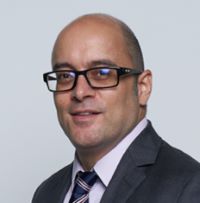
Ali Miserez, Nanyang Technological University
Ali Miserez is a Full Professor of Biomimetic and Bioinspired Materials at Nanyang Technological University (Singapore), which he joined in 2009, with joint appointments in the School of Materials Science and Engineering and the School of Biological Sciences. He obtained his PhD (2003) from EPFL (Switzerland) in the field of composite and mechanics of materials. From 2004 to 2009, he was a post-doctoral fellow at UC Santa Barbara, where he expanded his research towards biomimetic engineering and biochemistry of extra-cellular tissues.
Miserez’s research aims at revealing the molecular, physico-chemical, and structural principles from unique biological materials, and at translating their molecular design into novel biomimetic materials, including for healthcare applications.
At NTU, he is currently the founding Director of the “Center for Sustainable Materials”. His interdisciplinary research has been published in over 100 articles in a wide range of journals across the Physical and Life Sciences, including
in Science, Nature Materials, Nature Biotechnology, Nature Chemical Biology, Nature Chemistry, Biomacromolecules, ACS Nano, Acta Biomaterialia, Advanced Materials,
J. Biological Chemistry, Polymer Chemistry, etc. He has delivered numerous invited talks, including at Gordon Research Conferences in the field of bioinspired materials, biointerfaces, biomineralization, and intrinsically
disordered proteins.